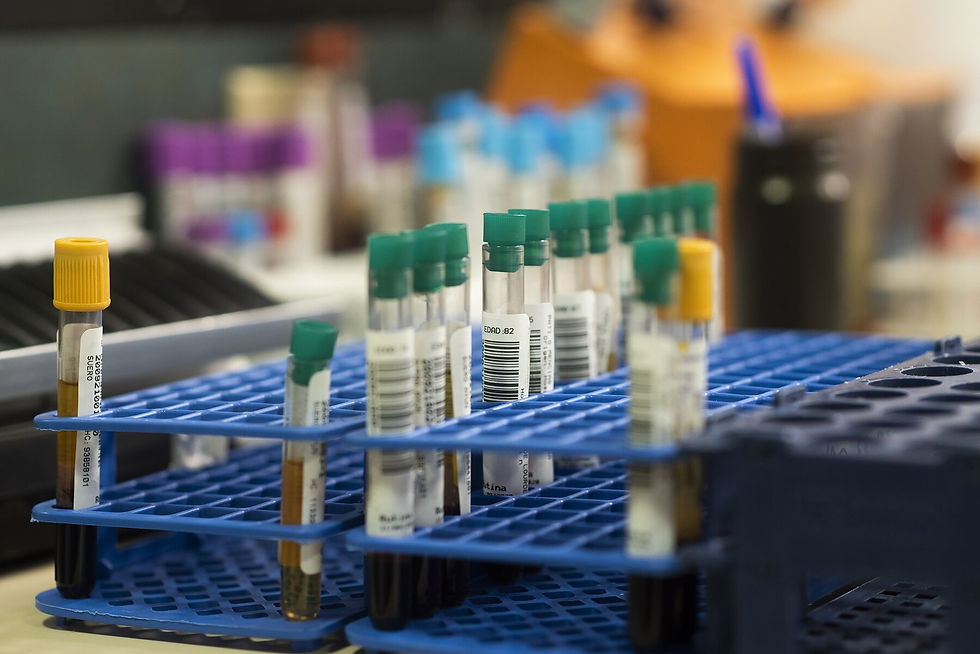The Vital Importance of Medical Courier Compliance: A Guide to DOT, OSHA, HIPPA, and More
- Dione Riley
- Apr 12, 2024
- 2 min read
In the world of medical logistics, compliance isn't just a buzzword – it's a critical component that ensures the safety, security, and confidentiality of sensitive medical materials. From transporting life-saving medications to delivering confidential patient records, medical couriers play a crucial role in the healthcare ecosystem. However, to operate effectively and ethically, they must adhere to a complex web of regulations and standards. Let's explore why compliance with regulations such as DOT, OSHA, HIPAA, and others is paramount in the medical courier industry.
1. DOT Regulations: Ensuring Safety on the Road
The Department of Transportation (DOT) sets forth regulations to ensure the safe transportation of hazardous materials, including certain medical specimens and substances. Compliance with DOT regulations helps prevent accidents, spills, and other incidents that could jeopardize public safety and environmental health. Medical courier companies must adhere to strict protocols for packaging, labeling, and handling hazardous materials to mitigate risks during transit.
2. OSHA Standards: Protecting Workers' Health and Safety
The Occupational Safety and Health Administration (OSHA) establishes workplace safety standards to protect employees from hazards and ensure a healthy work environment. Medical courier employees may face various risks during their duties, such as lifting heavy loads, exposure to biohazards, and potential accidents while driving. Compliance with OSHA regulations helps mitigate these risks through measures such as proper training, ergonomic practices, and the use of personal protective equipment (PPE).
3. HIPAA Compliance: Safeguarding Patient Privacy
The Health Insurance Portability and Accountability Act (HIPAA) sets forth stringent regulations to safeguard the privacy and security of patients' protected health information (PHI). Medical couriers often handle sensitive documents, including medical records, lab results, and prescription information. HIPAA compliance requires strict protocols for the secure handling, storage, and transmission of PHI to prevent unauthorized access, disclosure, or breaches of patient privacy.
4. Other Compliance Requirements: Upholding Ethical Standards
In addition to DOT, OSHA, and HIPAA, medical courier companies may be subject to various other compliance requirements, depending on their scope of services and geographic location. These may include state-specific regulations, industry standards, and certifications such as ISO 9001 or ISO 13485. Compliance with these standards not only ensures legal adherence but also demonstrates a commitment to ethical business practices, quality service delivery, and customer satisfaction.
Conclusion: Navigating the Regulatory Landscape
In the fast-paced world of medical logistics, compliance with regulations such as DOT, OSHA, HIPAA, and others is not just a legal obligation – it's a cornerstone of responsible operations. By adhering to these standards, medical courier companies uphold safety, protect patient privacy, and maintain the trust and confidence of healthcare providers and patients alike. As the regulatory landscape continues to evolve, staying informed and proactive in compliance efforts is essential for ensuring the integrity and reliability of medical courier services.
At Medical Logistic Services (MLS), we prioritize compliance with all relevant regulations and standards to deliver safe, secure, and reliable medical logistics solutions. Contact us today to learn more about how we can meet your transportation needs while upholding the highest standards of compliance and professionalism.





Comentarios